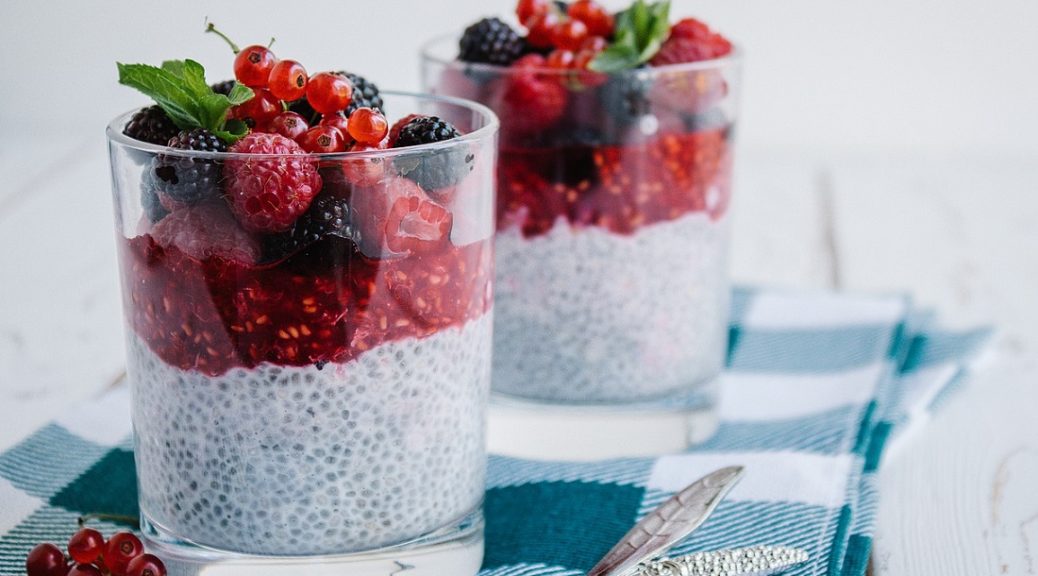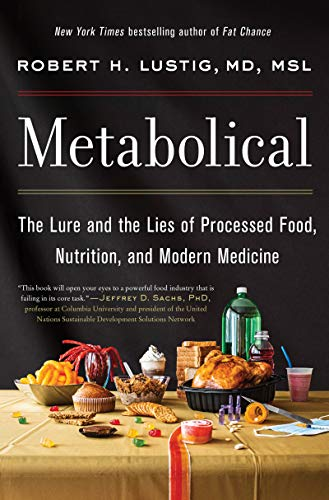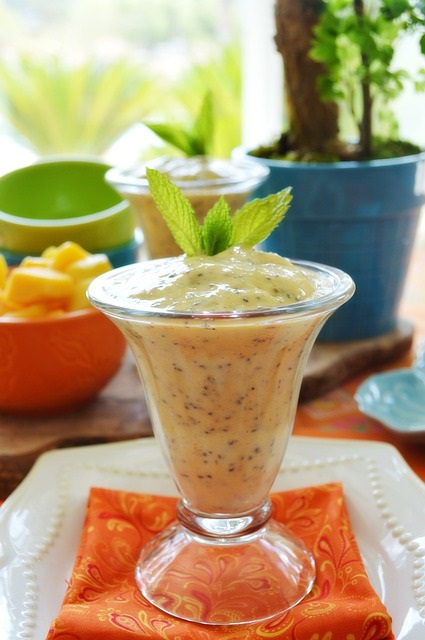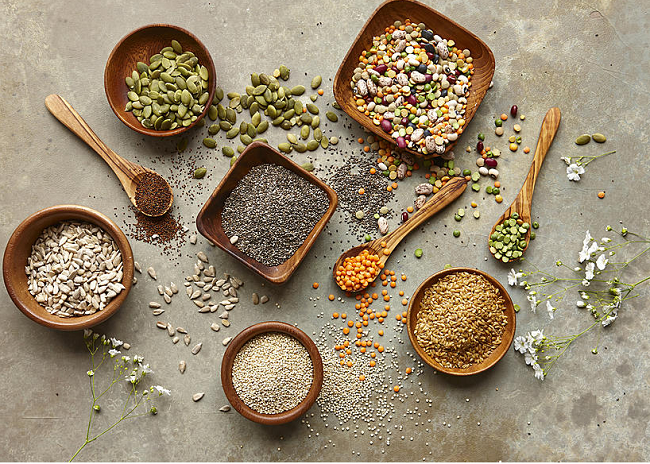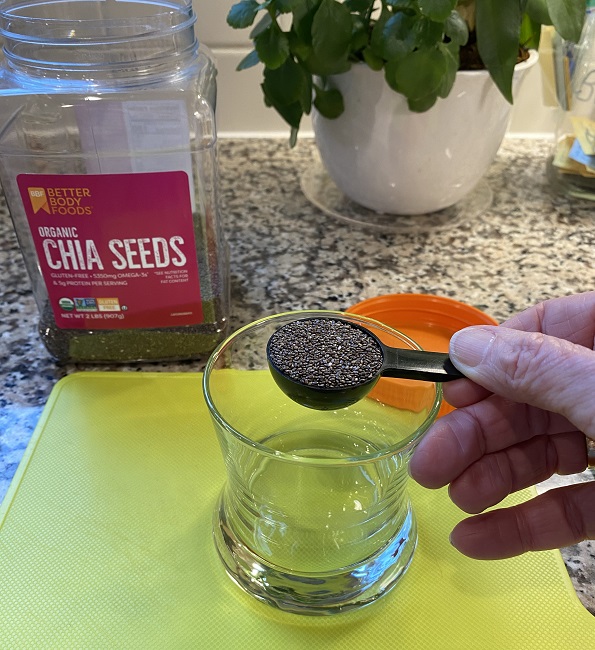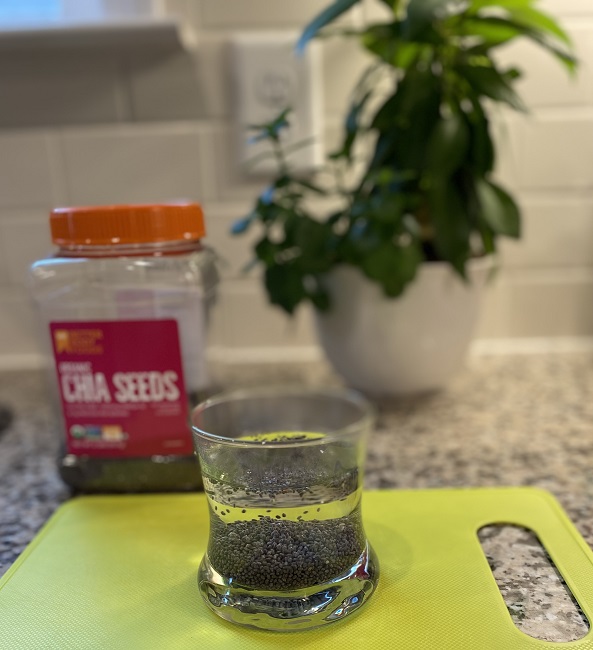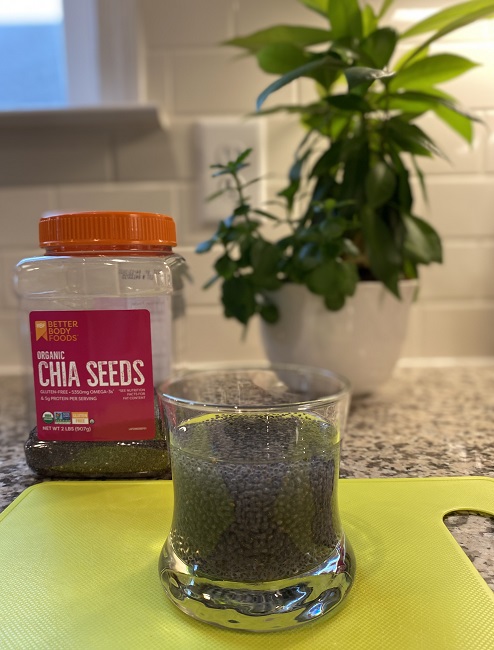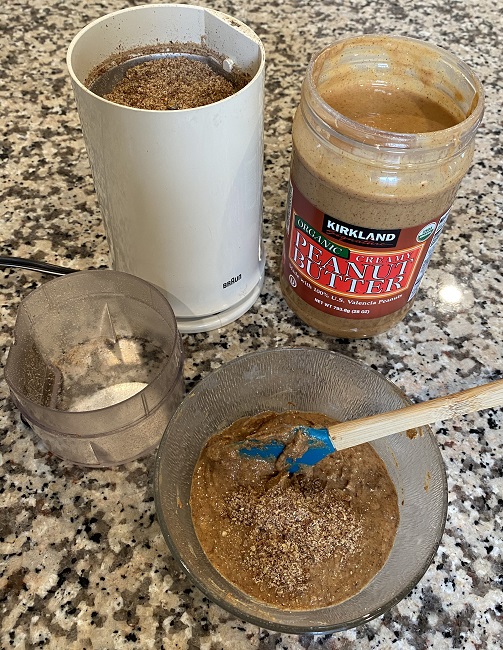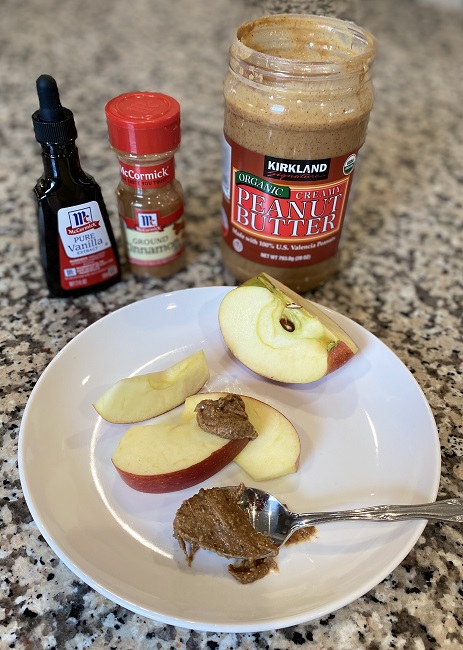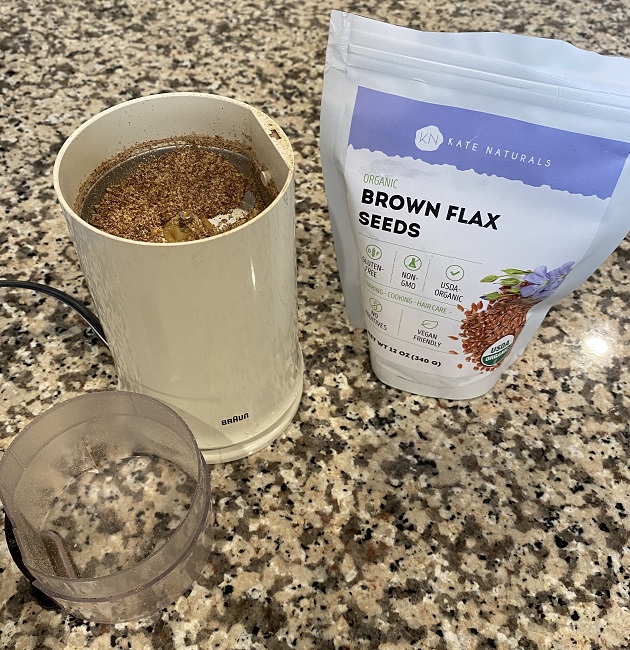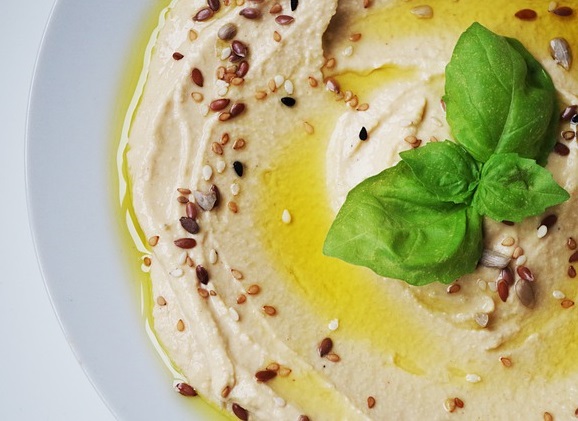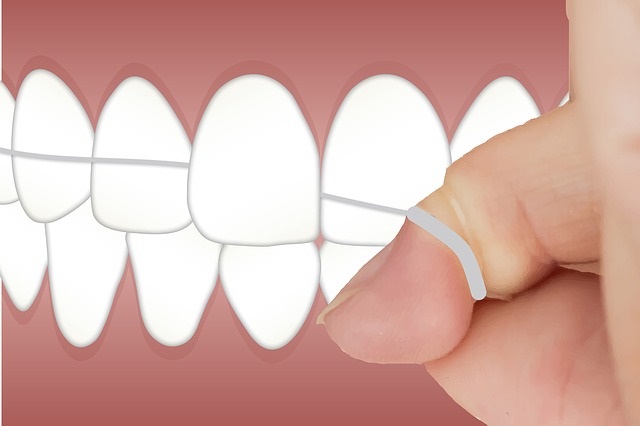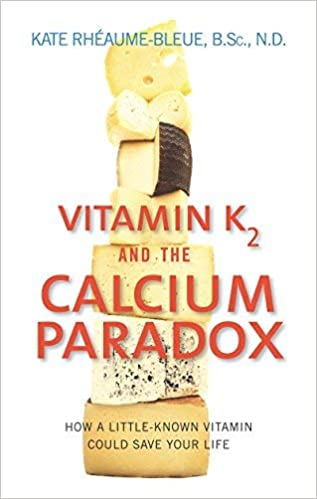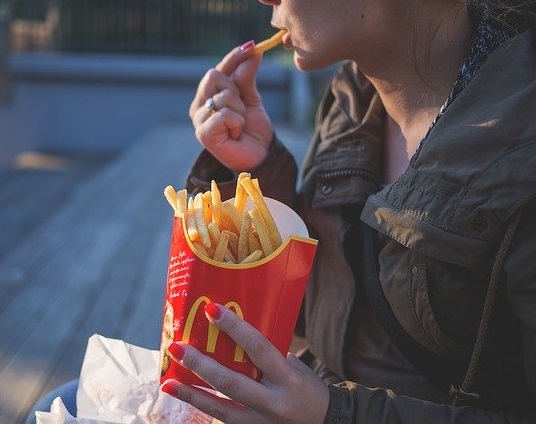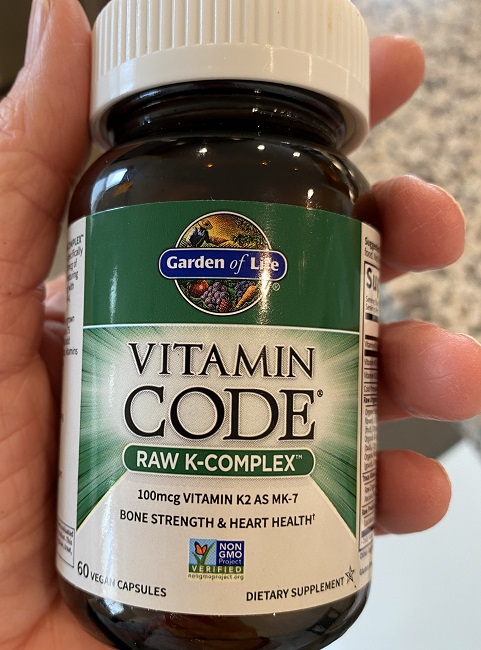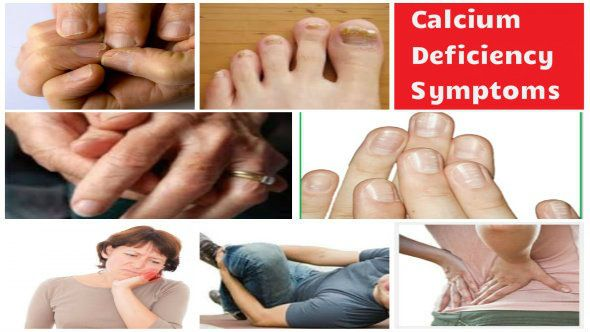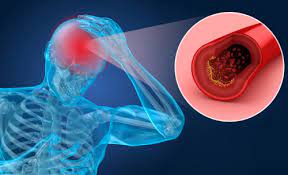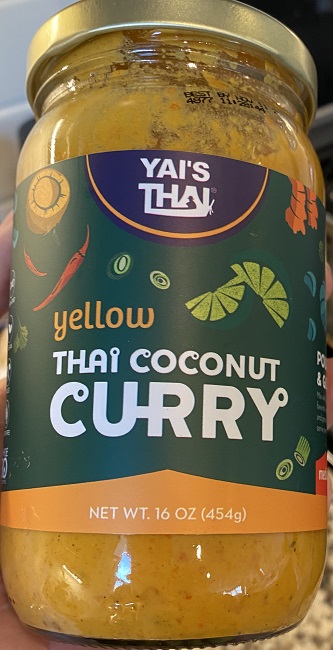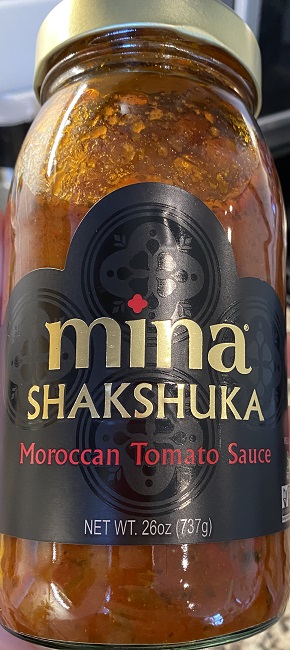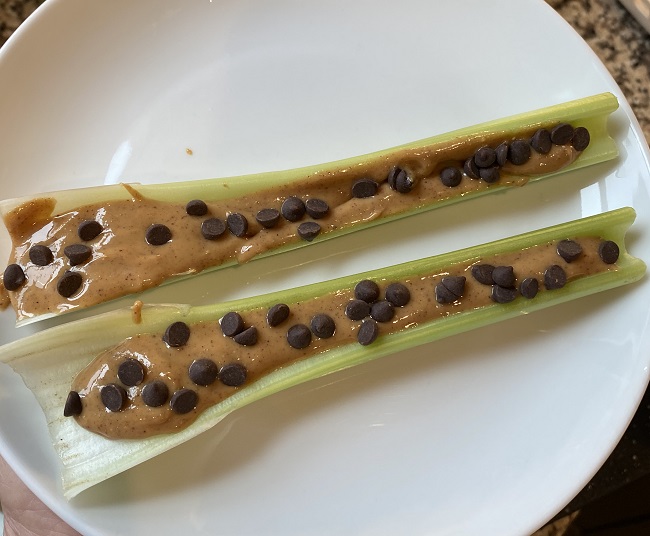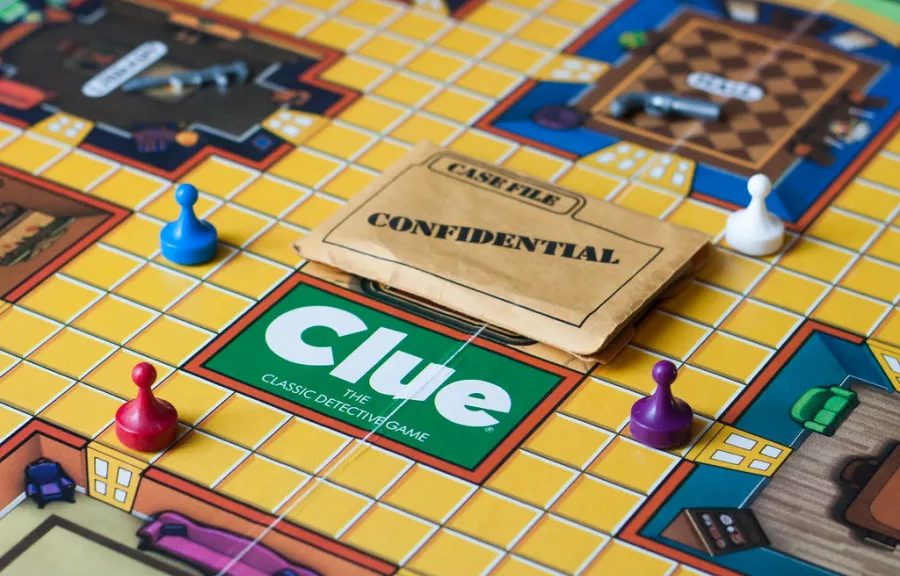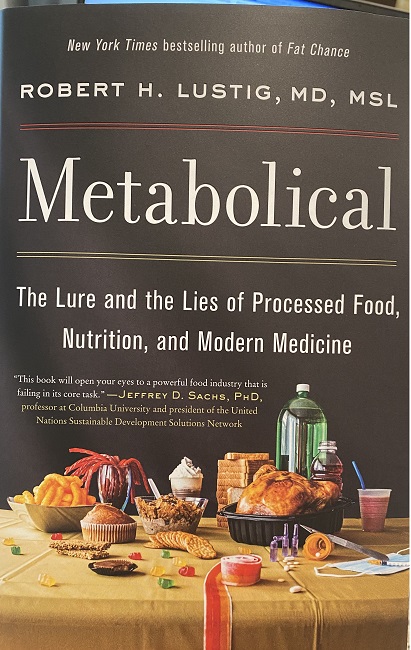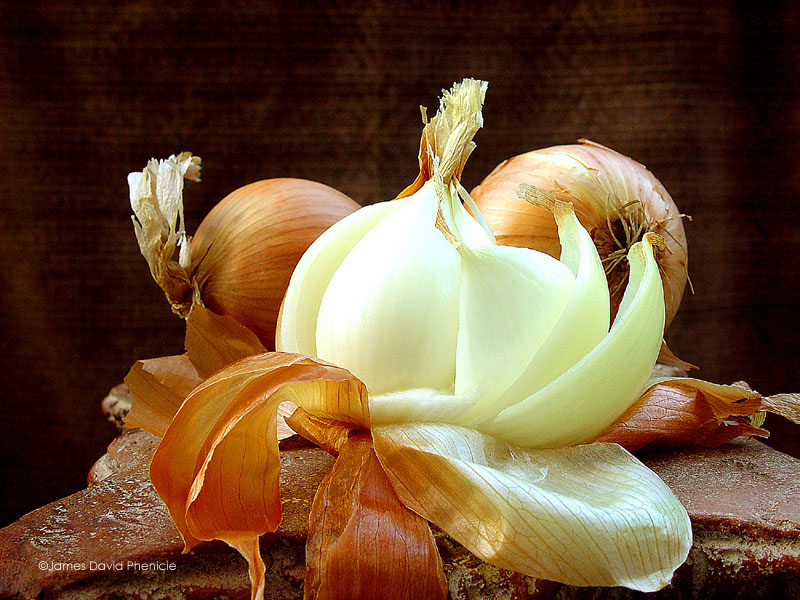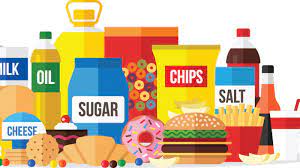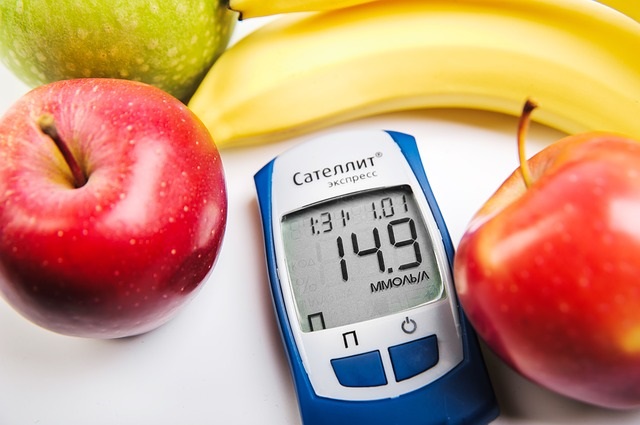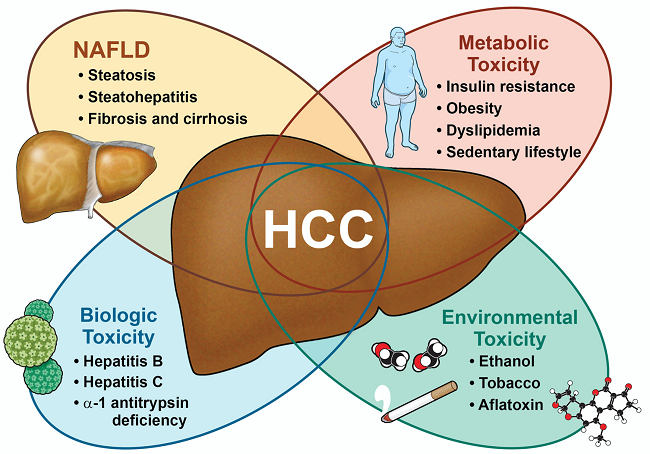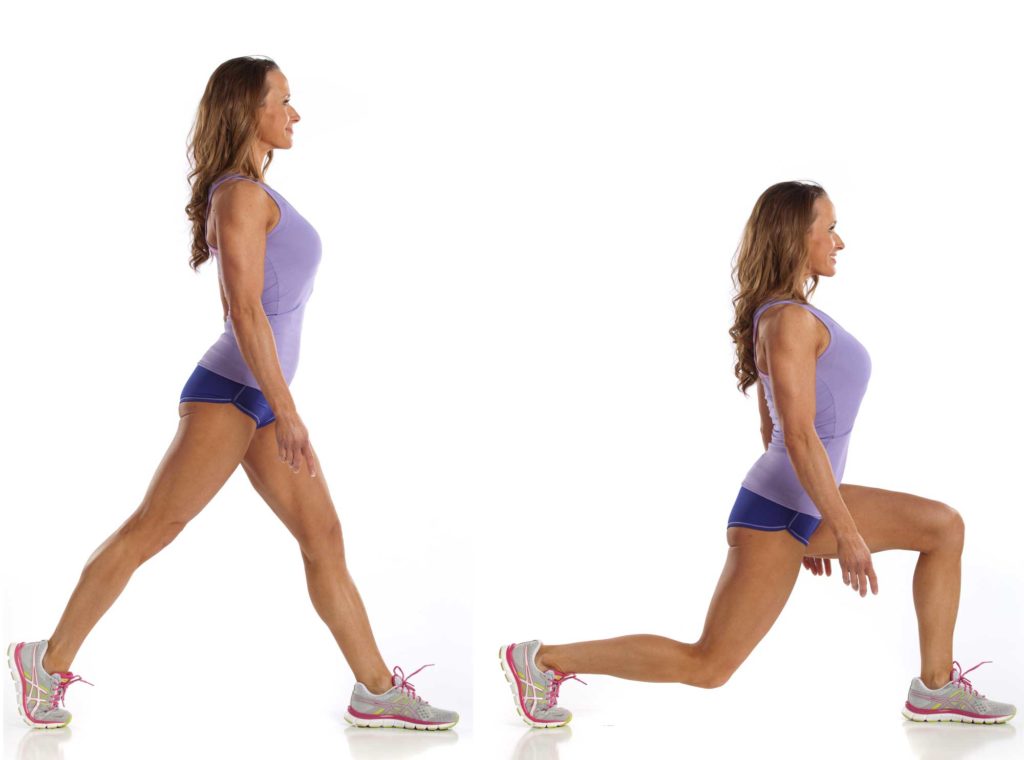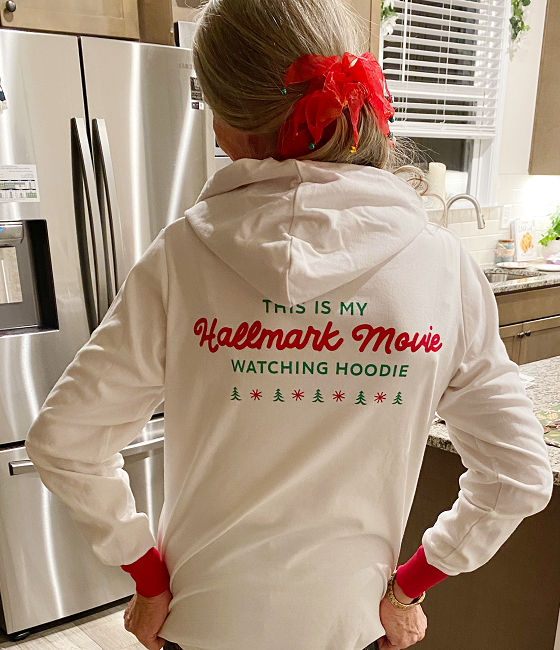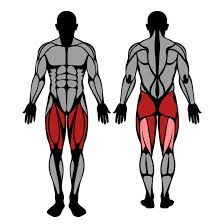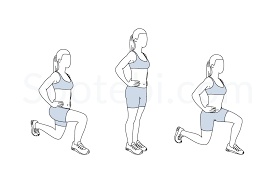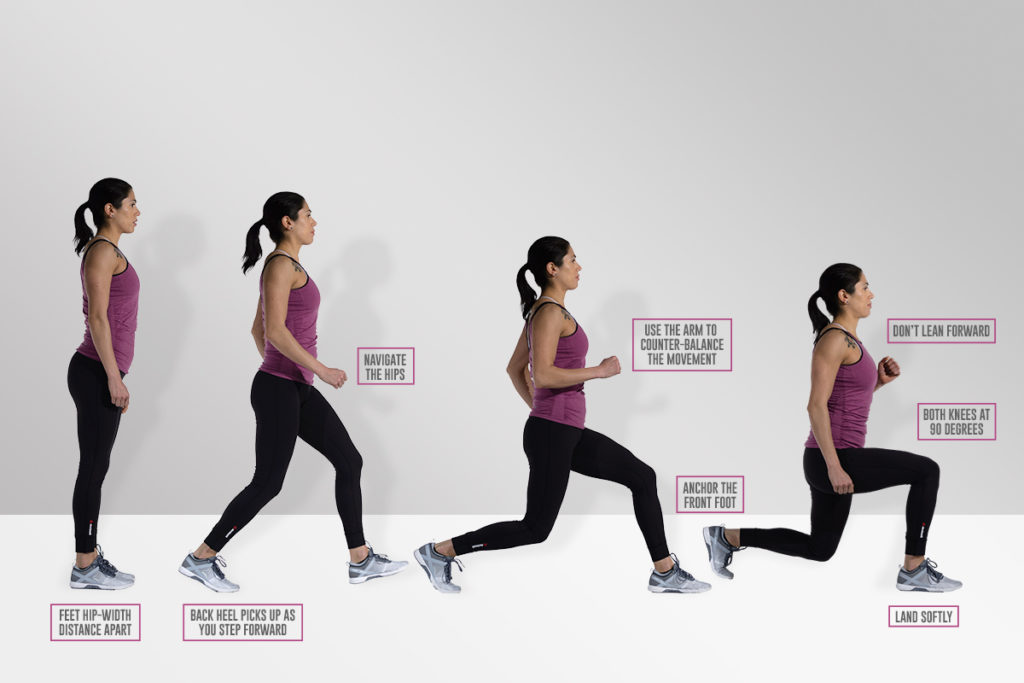The information I shared from recent readings HERE and HERE, discussions about a more holistic approach to wellness with my daughter has spurred me on to being more pro-active with my health.
Some changes are easy enough to do such as taking Vitamin K2, fish oil with EPA/DHA, Vitamin C, Vitamin D, and a nightly magnesium supplement.
But incorporating my daily servings of flax and chia seeds had been hard because the weather is still too cold for me to drink smoothies; otherwise, these seeds would be a cinch. They are perfect for adding to a blender.
What I like to do for smoothies is briefly presoak the scoop of chia seeds in some warm water, allowing them to swell up and gel. This one step prevents them from sticking to the sides of the blender.
Since learning that ground flax seeds quickly go rancid, I now grind just the amount I’ll be using that day in a coffee/spice grinder. The goodness in both flax and chia seeds is found on the inside of the seed; consuming them whole can be counterproductive if all seeds are not thoroughly chewed.
Let’s review what both seeds contain and how we are helped:
Omega-3 fatty acids – associated with heart health, lowering cholesterol, decreasing inflammation
Soluble Fiber –absorbs water and slows down digestion. Soluble fiber can help lower cholesterol, stabilize blood sugar levels, and lower the risk of heart disease.
Protein – a good source of plant protein
Antioxidants for general health, heart health, and blood pressure control
An array of minerals including the high levels of potassium in flax seeds, which is vital to proper muscle function and helps maintain lower blood pressure.
Flax seeds also contain lignans – a phytoestrogen associated with reduced risk for osteoporosis and has protective antioxidant properties
If you are new to consuming these fiber-rich seeds, start with a teaspoon of each seed, freshly ground, and gradually increase to 2 tablespoons each. While fiber is one of the desired critical elements in these seeds, new users may experience bloating, gas, or abdominal discomfort. These little guys absorb A LOT of water.
Check out these three photos showing one scoop of chia seeds with almost a cup of water added. After just two minutes, see what happened! This is part of the benefit – fiber absorbs water – but if you are not drinking enough water, instead of assisting in smooth digestion through the intestines, fiber can contribute to constipation.
It is important to note that before starting any kind of supplementation or dietary changes, users should contact their health care professional to check for any conflicts with pregnancy, lactation, medications, or allergies.
If you’re not throwing these gems into a smoothie every day, how are they supposed to be consumed?
I have found many ways to add these seeds to what I was already eating. Check this out:
Ground flax seeds can be added to most dry ingredients for baking without significantly changing flavors or appearance. Ground chia seeds, which are virtually flavorless, will show up as dark specks. Your muffins, breads, and cookies will have a slight crunch.
In baking, ground flax seeds can be an egg substitute when combined with water at the ratio of 1 tablespoon of ground flax seed to 3 tablespoons of water – let sit for a few minutes before using.
Stir ground seeds into peanut butter. The peanut butter I use has just two ingredients – peanuts and sea salt, whereas my sweetheart prefers Skippy peanut butter – whose ingredients are peanuts, sugar, palm oil, and salt (what’s wrong with that label, Foodtalk readers?).
To compensate for the pinch of sweetness missing from Skippy, I added my go-to sweet spices of cinnamon and a few drops of vanilla, along with the ground flax seed. Result? I was thrilled with my tasty new creation, and he was pleased with the flavor and texture! It was so good and the satiety from ground flax seeds lasts for hours.
Sprinkle whole flax seeds on your salad for a crunchy topping.
Combine ground flax to meat balls, meatloaf, and casseroles. This is also a sneaky approach to disguise new ingredients to unadventurous family members.
Use ground seeds in breading ingredients for an extra crunch factor.
Add both ground seeds to your cooked cereals.
Try whole seeds as a part of your Overnight Oats recipe, soaking them in your preferred choice of milk – perhaps with a touch of sweet spices such as cinnamon and vanilla. Add some berries in the morning and you are set for an easy breakfast.
Use whole or ground flax seeds instead of croutons. Simply crisp in a pan over medium heat for a few minutes, stirring constantly.
Add ground or whole flax seeds to your homemade granola.
Add ground flax seeds to your salad dressing.
Boost your soup recipes with ground flax.
Use ground flax as a thickener to your gravies.
Let me know of your own flax and chia seed successes, and please share this post if you have found it useful by using the options in the MORE button below.
In health-
Deidre

